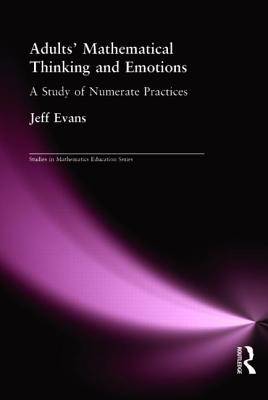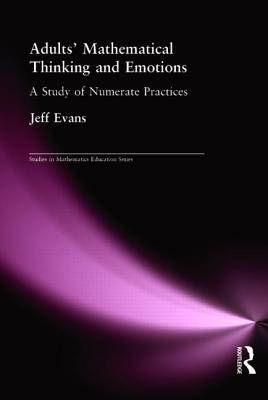
- Afhalen na 1 uur in een winkel met voorraad
- Gratis thuislevering in België vanaf € 30
- Ruim aanbod met 7 miljoen producten
- Afhalen na 1 uur in een winkel met voorraad
- Gratis thuislevering in België vanaf € 30
- Ruim aanbod met 7 miljoen producten
Zoeken
€ 97,95
+ 195 punten
Uitvoering
Omschrijving
The crisis around teaching and learning of mathematics and its use in everyday life and work relate to a number of issues. These include: The doubtful transferability of school maths to real life contexts, the declining participation in A level and higher education maths courses, the apparent exclusion of some groups, such as women and the aversion of many people to maths. This book addresses these issues by considering a number of key problems in maths education and numeracy: *differences among social groups, especially those related to gender and social class *the inseparability of cognition and emotion in mathematical activity *the understanding of maths anxiety in traditional psychological, psychoanalytical and feminist theories *how adults' numerate thinking and performance must be understood in context. The author's findings have practical applications in education and training, such as clarifying problems of the transfer of learning, and of countering maths anxiety.
Specificaties
Betrokkenen
- Auteur(s):
- Uitgeverij:
Inhoud
- Aantal bladzijden:
- 320
- Taal:
- Engels
- Reeks:
- Reeksnummer:
- nr. 15
Eigenschappen
- Productcode (EAN):
- 9780750709132
- Verschijningsdatum:
- 26/10/2000
- Uitvoering:
- Hardcover
- Formaat:
- Genaaid
- Afmetingen:
- 162 mm x 241 mm
- Gewicht:
- 598 g

Alleen bij Standaard Boekhandel
+ 195 punten op je klantenkaart van Standaard Boekhandel
Beoordelingen
We publiceren alleen reviews die voldoen aan de voorwaarden voor reviews. Bekijk onze voorwaarden voor reviews.











